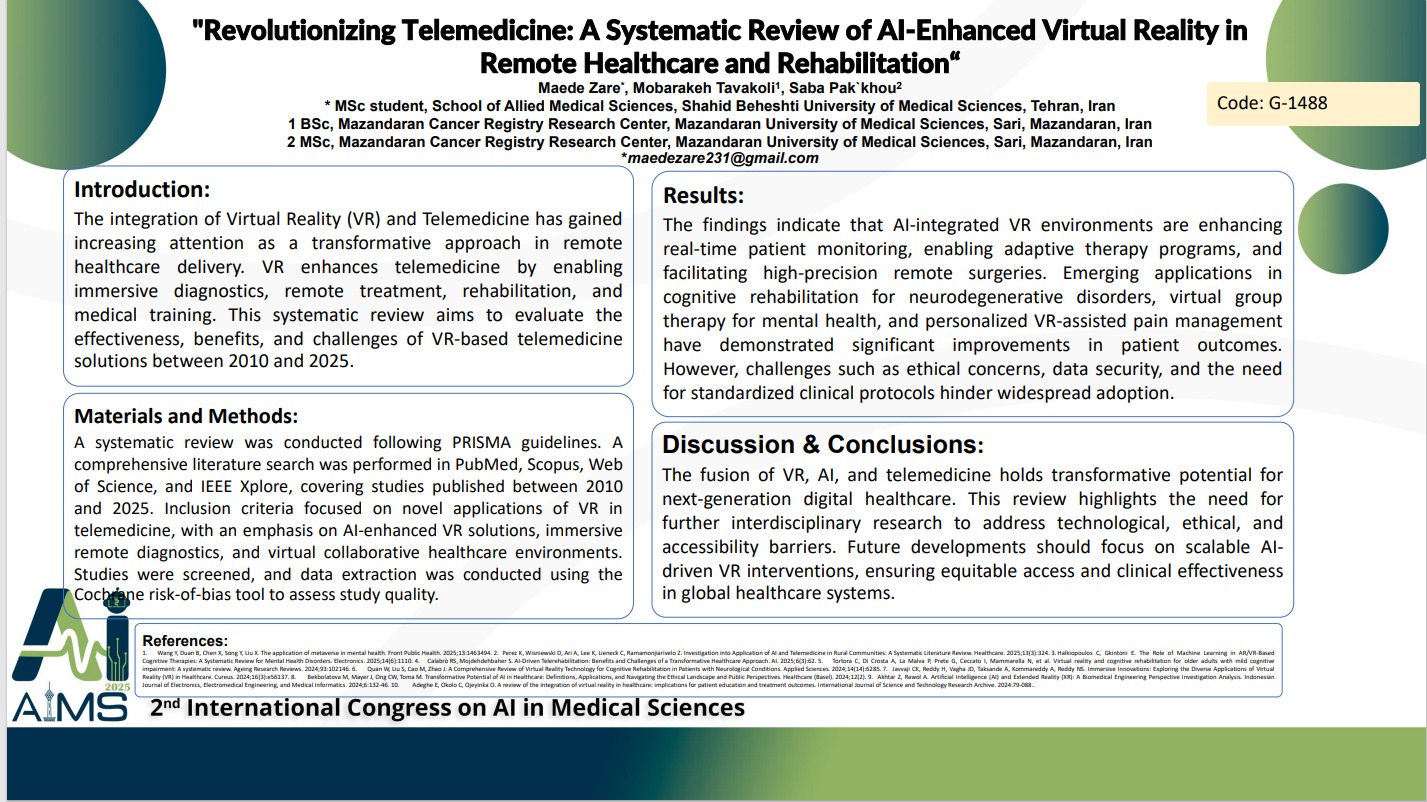Revolutionizing Telemedicine: A Systematic Review of AI-Enhanced Virtual Reality in Remote Healthcare and Rehabilitation
Code: G-1488
Authors: Maede Zare * ℗, Mobarakeh Tavakoli, Saba Pak`khou
Schedule: Not Scheduled!
Tag: Robotics in Surgery and Care
Download: Download Poster
Abstract:
Abstract
Background and aims: The integration of Virtual Reality (VR) and Telemedicine has gained increasing attention as a transformative approach in remote healthcare delivery. VR enhances telemedicine by enabling immersive diagnostics, remote treatment, rehabilitation, and medical training. This systematic review aims to evaluate the effectiveness, benefits, and challenges of VR-based telemedicine solutions between 2010 and 2025. Method: A systematic review was conducted following PRISMA guidelines. A comprehensive literature search was performed in PubMed, Scopus, Web of Science, and IEEE Xplore, covering studies published between 2010 and 2025. Inclusion criteria focused on novel applications of VR in telemedicine, with an emphasis on AI-enhanced VR solutions, immersive remote diagnostics, and virtual collaborative healthcare environments. Studies were screened, and data extraction was conducted using the Cochrane risk-of-bias tool to assess study quality. Results: The findings indicate that AI-integrated VR environments are enhancing real-time patient monitoring, enabling adaptive therapy programs, and facilitating high-precision remote surgeries. Emerging applications in cognitive rehabilitation for neurodegenerative disorders, virtual group therapy for mental health, and personalized VR-assisted pain management have demonstrated significant improvements in patient outcomes. However, challenges such as ethical concerns, data security, and the need for standardized clinical protocols hinder widespread adoption. Conclusion: The fusion of VR, AI, and telemedicine holds transformative potential for next-generation digital healthcare. This review highlights the need for further interdisciplinary research to address technological, ethical, and accessibility barriers. Future developments should focus on scalable AI-driven VR interventions, ensuring equitable access and clinical effectiveness in global healthcare systems.
Keywords
Virtual Reality, Telemedicine, Digital Health
